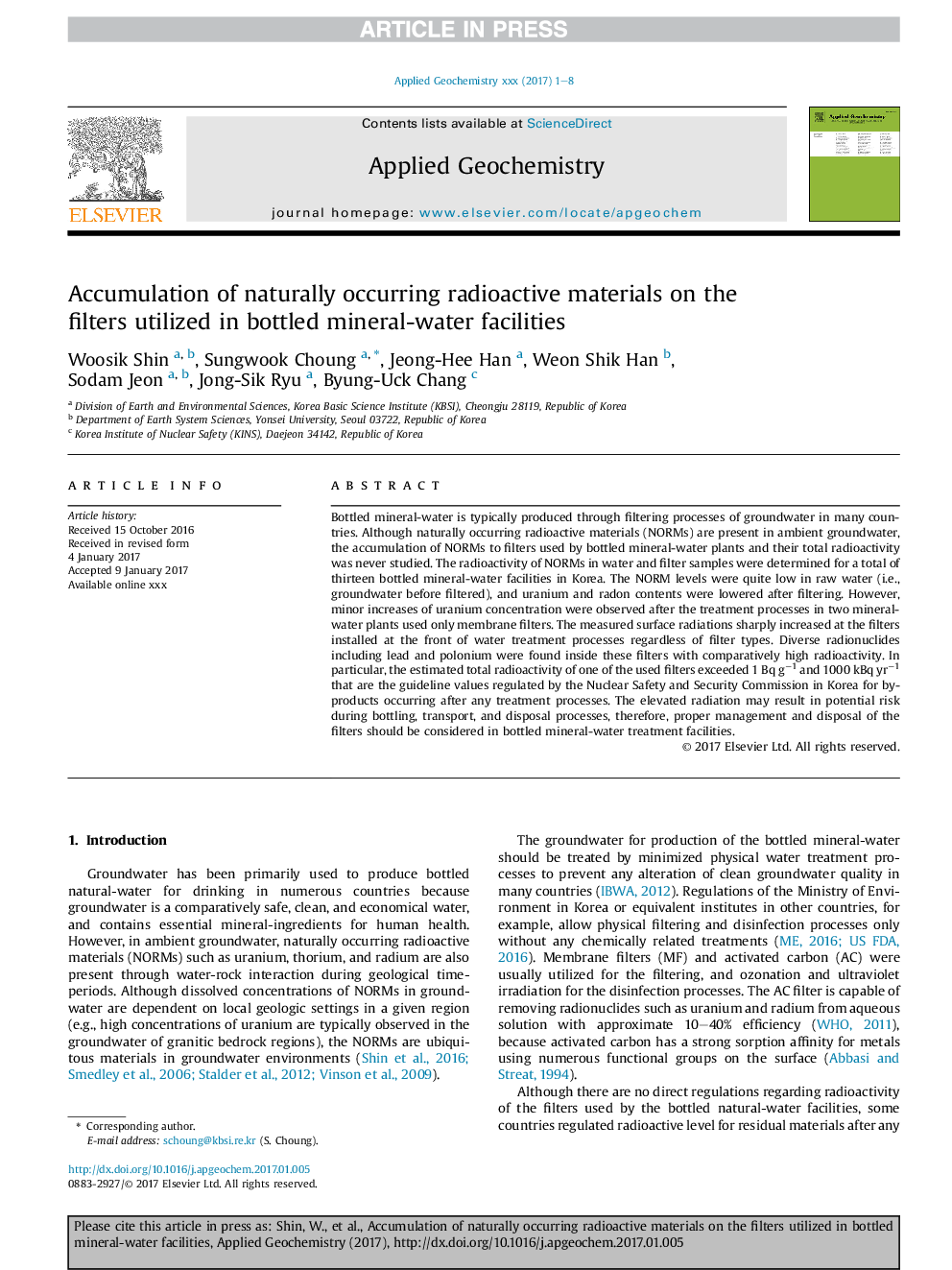| Article ID | Journal | Published Year | Pages | File Type |
|---|---|---|---|---|
| 5752430 | Applied Geochemistry | 2017 | 8 Pages |
Abstract
Bottled mineral-water is typically produced through filtering processes of groundwater in many countries. Although naturally occurring radioactive materials (NORMs) are present in ambient groundwater, the accumulation of NORMs to filters used by bottled mineral-water plants and their total radioactivity was never studied. The radioactivity of NORMs in water and filter samples were determined for a total of thirteen bottled mineral-water facilities in Korea. The NORM levels were quite low in raw water (i.e., groundwater before filtered), and uranium and radon contents were lowered after filtering. However, minor increases of uranium concentration were observed after the treatment processes in two mineral-water plants used only membrane filters. The measured surface radiations sharply increased at the filters installed at the front of water treatment processes regardless of filter types. Diverse radionuclides including lead and polonium were found inside these filters with comparatively high radioactivity. In particular, the estimated total radioactivity of one of the used filters exceeded 1 Bq gâ1 and 1000Â kBq yrâ1 that are the guideline values regulated by the Nuclear Safety and Security Commission in Korea for by-products occurring after any treatment processes. The elevated radiation may result in potential risk during bottling, transport, and disposal processes, therefore, proper management and disposal of the filters should be considered in bottled mineral-water treatment facilities.
Related Topics
Physical Sciences and Engineering
Earth and Planetary Sciences
Geochemistry and Petrology
Authors
Woosik Shin, Sungwook Choung, Jeong-Hee Han, Weon Shik Han, Sodam Jeon, Jong-Sik Ryu, Byung-Uck Chang,
